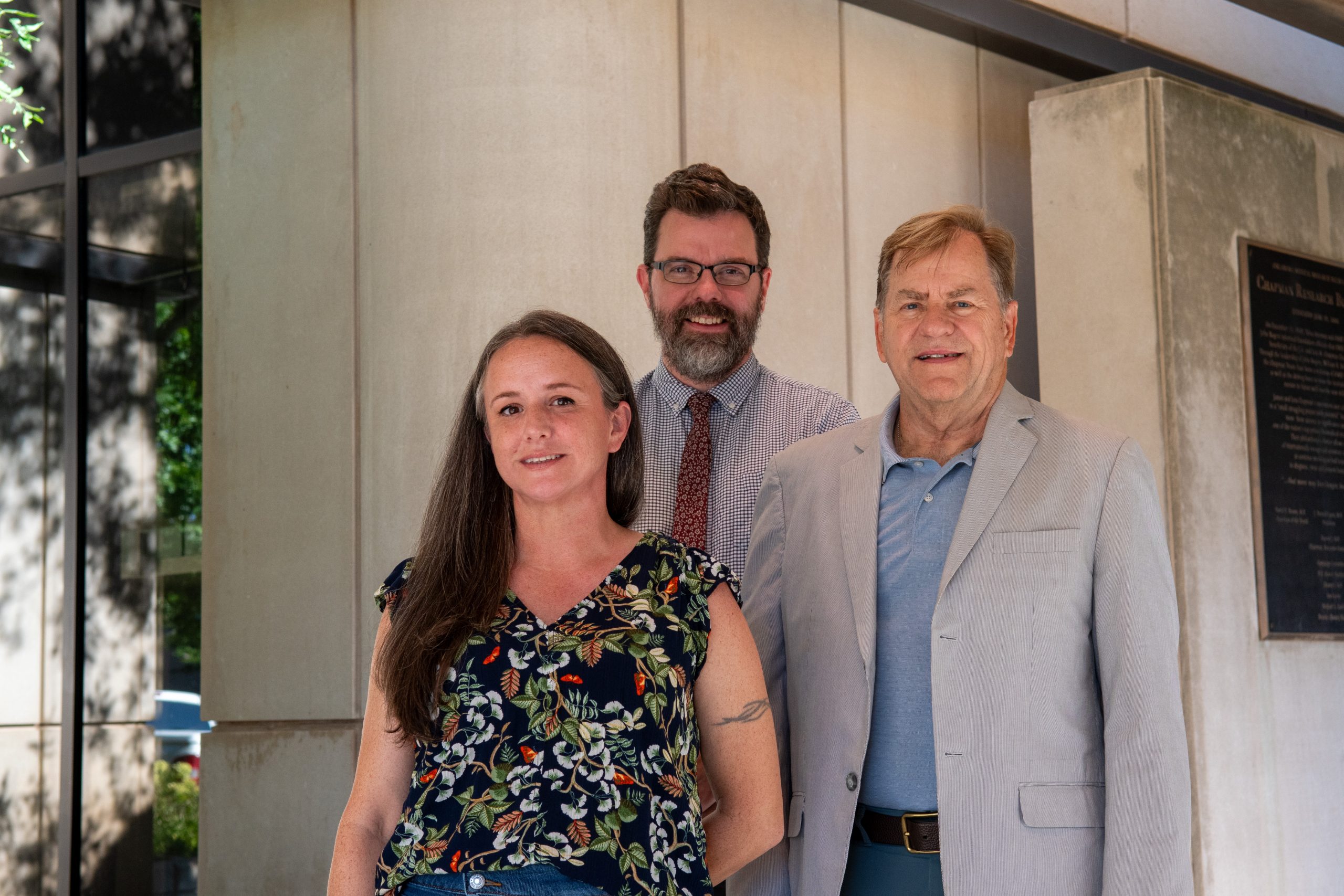Community members provide outside perspective on our research.
–
More than 30 years ago, Doug Dale finally surrendered to his neighbor’s prodding.
Doug’s neighbor was Fletcher Taylor, former chair of Cardiovascular Biology at OMRF. Fletcher’s request: for Doug to serve on the Institutional Animal Care and Use Committee, or IACUC. The committee meets monthly to review protocols involving individual studies requiring the use of lab animals, typically mice.
The IACUC is one of several oversight committees at OMRF. “All of them rely on members of the public like Doug,” says Senior Vice President & General Counsel Adam Cohen. “As outsiders looking in, they act as the community’s eyes, ears and conscience.”
For example, the National Institutes of Health requires at least two people who are nonscientists or unaffiliated with OMRF to serve on IACUC. There are similar rules for OMRF’s Institutional Biosafety Committee, which oversees research involving biohazards, and Institutional Review Board, charged with safeguarding human subjects.
Community members “make our work possible by examining protocols from a nonscientist’s perspective,” says Environmental Health, Safety and Institutional Compliance Director Trent Brown, who serves on three OMRF oversight committees.
Doug, a retired pharmaceutical sales representative, considers himself a sort of community watchdog. After more than three decades, he remains amazed at the precision and care OMRF scientists take when designing a study. “We wouldn’t have our accreditation without that compassion,” he says, “but it relieves me that they are doing everything possible to ensure humane treatment.”
IACUC Chairman Bill Freeman says Doug’s best quality is asking “the big-picture questions. Sometimes our scientists and other internal members may not think of those, because we’re focused on the details.”
“I can tell you this,” Doug says. “We’re not just a rubber stamp.”
That refrain rings true for Brent Richards, an unaffiliated member of OMRF’s Institutional Biosafety Committee. “We take our role very seriously,” he says.
With a bachelor’s in biochemistry, a doctorate in neuroscience, and research experience at the National Institute of Mental Health, Brent brings sterling scientific credentials to the committee. In his day job, Brent serves as vice president of academic services at the Oklahoma School of Science and Mathematics.
Not surprisingly, Brent is “a very engaging committee member,” says Trent. “He asks great questions.”
Kristina Amarislani also prides herself on asking tough questions. A certified public accountant, she joined OMRF’s Institutional Review Board in 2011, when she worked in the Accounting Department. Despite leaving the foundation to start her own business, Kristina has stayed on the IRB.
Her main motivation is personal. “My mother has really bad arthritis and has been treated in OMRF’s clinic a lot throughout my life, so this is my way of giving back in her honor.”
Kristina focuses on ensuring scientists write protocols in language that study participants can understand. “That’s my strength,” she says. “That, plus helping them consider the practical application of things we’re asking patients to do.”
She recalls a study that asked new mothers who have lupus to produce extra milk. “On paper, it made sense,” Kristina says, “but can you imagine having a chronic illness and then being feeling pressure to provide extra milk?”
The scenario so concerned Kristina that she contacted a lactation expert and then submitted a report to the IRB. “The scientist ended up not going forward with the study,” she remembers.
That anecdote exemplifies the role outside committee members play, says Hal Scofield, who serves on the IRB with Kristina. “Patients in these proposed studies must sign a consent, and that consent should be written in language those patients can fully comprehend.”
Beyond being a prerequisite for federal funding, Hal says it’s just common sense to involve lay members on our oversight committees. “Everyone benefits from hearing a fresh voice.”



